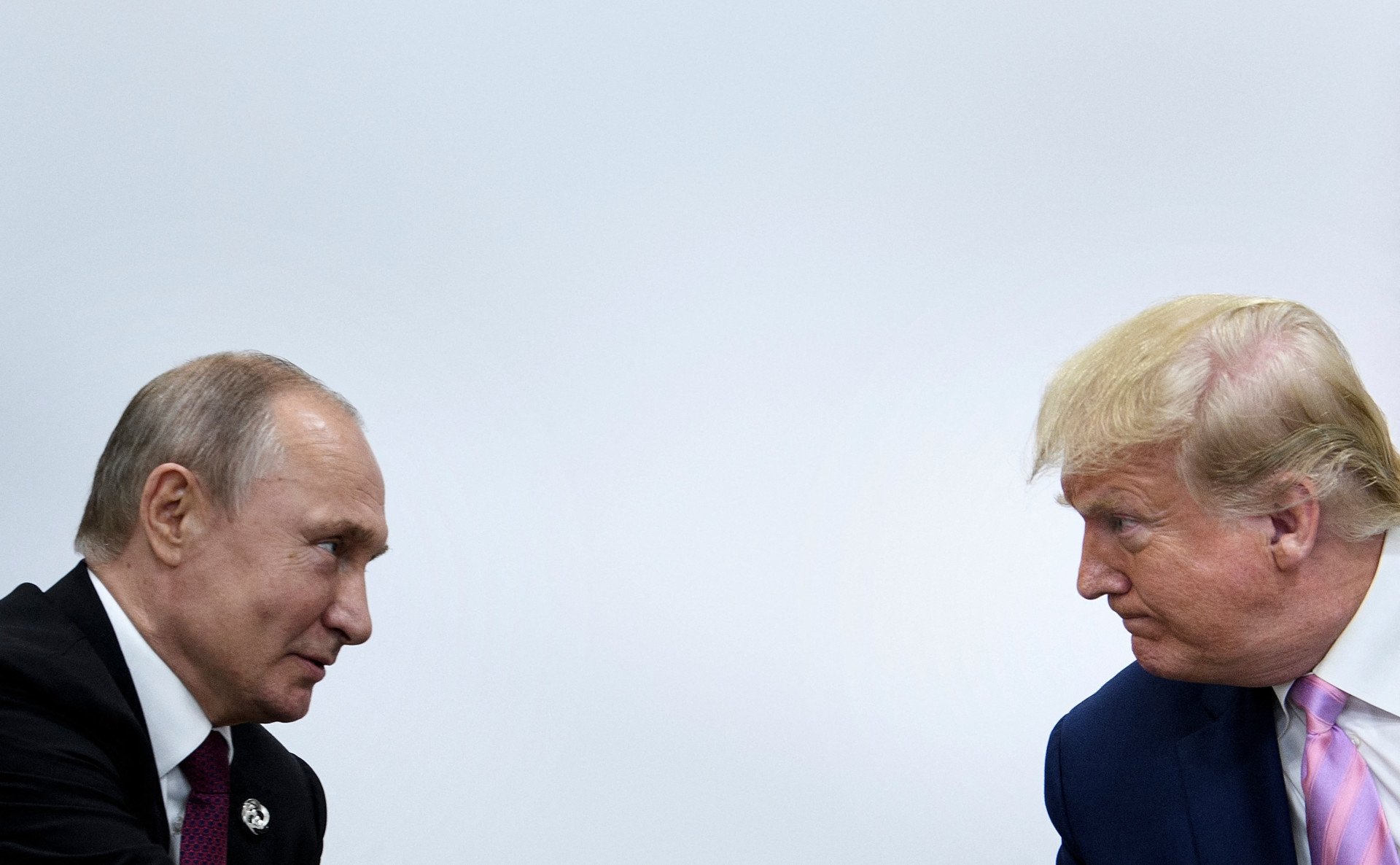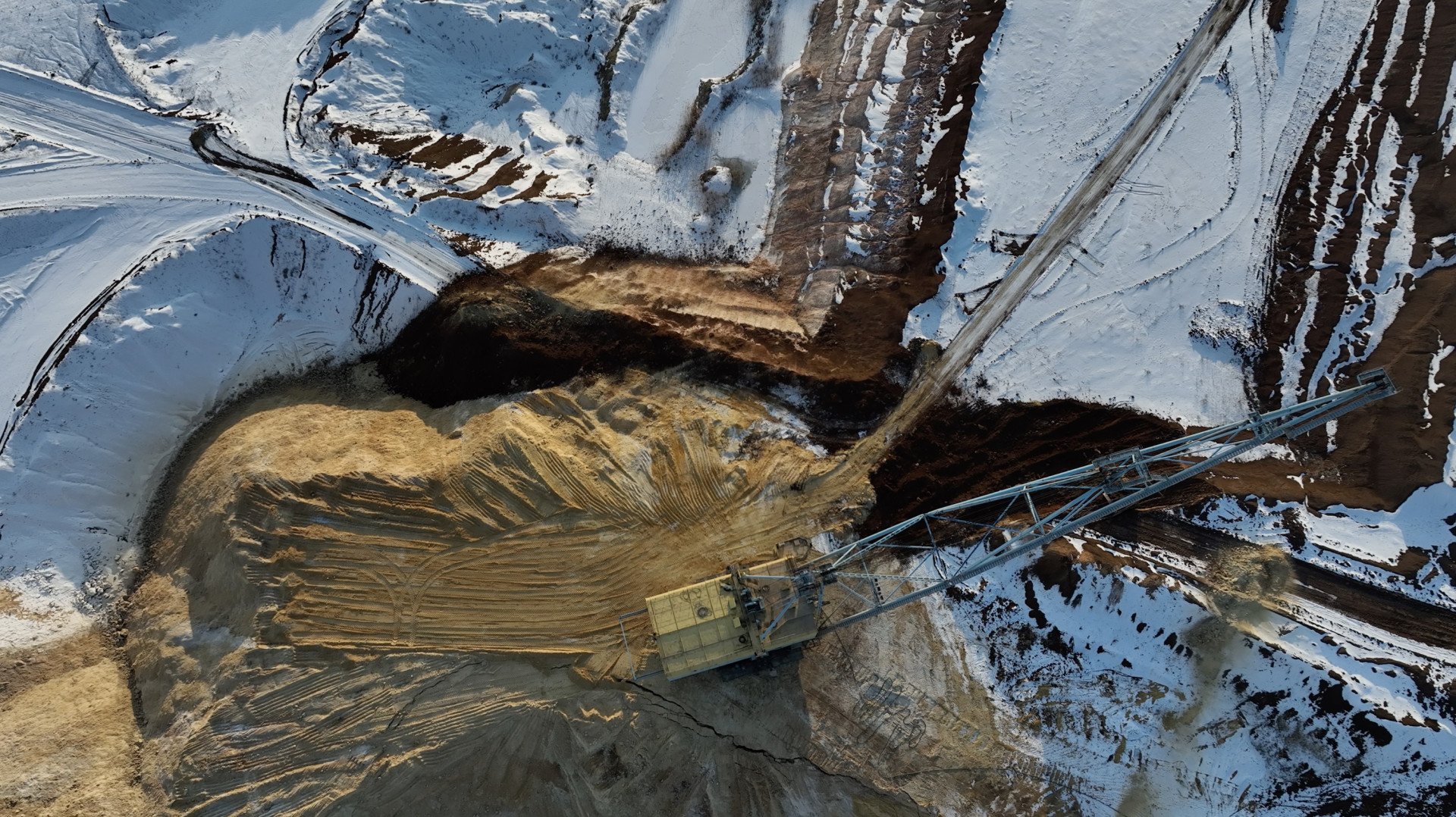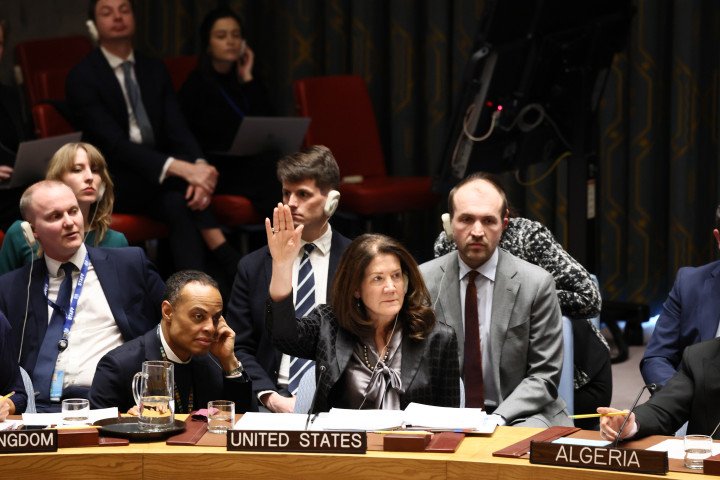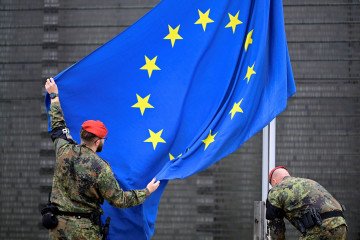- Category
- World
What a US-Russia Mineral Deal Would Really Mean

Although billed as economic talks, the U.S.-Russia negotiations in Istanbul signal a shift—business over principles. With Moscow’s rare earth deals on the table, the focus shifts from ending the war to legitimizing Russia’s land grab.
Kirill Dmitriev, head of Russia’s sovereign wealth fund, presented a simple printout during the February 18 talks with the Trump administration in Saudi Arabia. The document claimed that American companies had forfeited $324 billion in potential losses by pulling out of Russia over its invasion of Ukraine.
As the U.S. and Russia meet in Istanbul for their second round of talks, the meeting looks more like a business venture than talks to end the war against Ukraine. Putin, who said on February 24, “We are ready to work with our partners, including the Americans,” seems happy to sign a deal. U.S. President Donald Trump, on the other hand, said, "I'd like to buy minerals on Russian land too. If we can, the rare earth. They have very good rare earths also, they both do (Russia and Ukraine).”
In a televised interview following a meeting on developing the rare earth metals industry, Putin stated that Ukraine’s potential critical minerals deal with the U.S. “does not concern” Russia. While he asserted that Moscow had more to offer Trump than Kyiv under a future economic deal to explore Russia's rare earth metal deposits jointly, “We would be ready to cooperate with our American partners ... if they showed interest in working together,” Putin said, adding that Russia has “an order of magnitude more resources of this kind than Ukraine.”
Although Russia’s economy is weakened by sanctions, all while its population is shrinking, the mere fact that talks of economic cooperation are on the table sends a signal: working with Moscow is acceptable, so long as its actions in Ukraine are overlooked.
The U.S.-Russia deal would include minerals found in Russian-occupied Ukrainian territories. It could have catastrophic consequences for the international order and the principles of sovereignty.

Legitimizing Russia's aggression
When mentioning temporarily occupied territories, Putin referred to the illegal land grab as “ new territories,” a phrase that overtly erases the brutal reality of Russian occupation and war crimes.
At the core of this proposed deal lies a dangerous validation of Russia’s illegal annexation of Ukrainian land. The presence of American businesses in these illegally occupied regions would de facto recognize them as part of Russia.
Such a deal would grant Russia much-needed international recognition of its territorial expansions, effectively undermining Ukraine's sovereignty and sending the message to the global community that territorial conquest can be rewarded. The cherry on top: Russian and American companies could band together and start producing aluminum jointly—Washington working with Moscow—making “good money” while ensuring that “the corresponding volumes of aluminum will enter the domestic market at absolutely acceptable market prices,” Putin said.
Empowering corporate interests at a grave cost
This potential deal is not merely about the extraction of rare earth metals but about the return of corporate giants to Russia. Putin’s emphasis on involving private companies signals his intent to revive business operations that fled Russia following its 2022 full-scale invasion of Ukraine.
American corporations could soon be at the forefront of a corporate-driven normalization of the Kremlin’s actions. And it’s not just U.S. companies. Renault, the French automaker, floated “an option.”
“I haven’t thought about that kind of scenario because everything is moving so constantly,” said CEO Luca de Meo. “We have an option: let’s see how things go.”
For these companies, the ethical cost of doing business with the invader would be overshadowed by the lure of untapped markets and resource-rich territories. As Trump forewarned himself, “Sometimes your best investments are the ones you don't make.”
The sanctions dilemma
“No, we haven’t lifted any sanctions on anybody,” Trump said at a press conference on February 25. “I guess it will be at some point, but right now we [haven't agreed to lift sanctions on anybody].” However, the mineral deal could lead to a push for the easing or removal of sanctions, further benefiting Russian businesses and international corporations alike.
As Western companies resume operations, they would inevitably demand the lifting of restrictions, framing this as a mutually beneficial business arrangement. This would not only fuel Russia’s war machine but also set a precedent for how sanctions are applied in the future. The economic pressure that was supposed to stifle Russian aggression would be diluted by corporate interests seeking access to resources.

Before Trump's comment, U.S. Treasury Secretary Scott Bessent indicated that the United States could modify sanctions based on Russia's involvement in Ukraine "peace" talks. As the U.S. goes in for its second meeting with the Russian delegation, a business meeting if you will, Trump conveniently left the door open at the recent press conference, suggesting the lifting of sanctions may be a possibility in the future.
Alexei Chesnakov, a Russian political scientist known for his close association with the Kremlin, spoke of “potential benefits” stating that “If the U.S. were to engage with Russia in the context of these rare earth metals and aluminum deals, it would send a signal to other international players that Russia’s actions are not only tolerable but also potentially profitable. Instead of isolating Russia, slowly the Kremlin would re-enter the fold of the international economy, bolstering its influence in Europe and Asia.” Chesnakov’s statement barely conceals the implication that, for Russia, economic engagement overrides accountability.
Putin’s political survival
The Kremlin is crafting an exit from its standoff with the West—not as a retreat, but as a triumph. The speed of its recent moves suggests Moscow has long sought a way out without admitting failure. Rather than acknowledge setbacks, for example, that Russia’s wartime spending outpaces its earnings, ending the year with a record $35 billion deficit, up from 3.3 trillion in 2023 and 3.2 trillion in 2022, Russia is reframing losses as victories and spinning any settlement as proof of strength. For Putin, battlefield success matters less than political survival.
“[Putin] does not mind sacrificing his army and his people, as he is suffering enormous material and human losses and has not achieved any significant territorial advances,” the EU’s High Representative for Foreign Affairs, Josep Borrell, said in 2024. “Putin has no intention of giving in. His political survival is at stake.”
In this climate of “the Great Capitulation,” as opinion writer for The New York Times Michelle Goldberg termed it, the violence of economic cooperation is becoming alarmingly clear.
BBC News diplomatic correspondent James Landale highlighted the unprecedented nature of the US opposing a UN resolution condemning Russia's full-scale invasion of Ukraine, stating, "If you want a measure of the scale of the transatlantic rift, consider this: I am told that yesterday was the first time since 1945 that the US voted with Russia and against Europe at the UN on an issue of European security."

As the world watches these negotiations unfold, it is vital to remember that Ukraine's fight is not only against a foreign invader but also against the global normalization of that invasion. The deals being made may see short-term financial benefits, but there is a long-term price.
-554f0711f15a880af68b2550a739eee4.jpg)

-605be766de04ba3d21b67fb76a76786a.jpg)
-2c683d1619a06f3b17d6ca7dd11ad5a1.jpg)


-661026077d315e894438b00c805411f4.jpg)
-46f6afa2f66d31ff3df8ea1a8f5524ec.jpg)